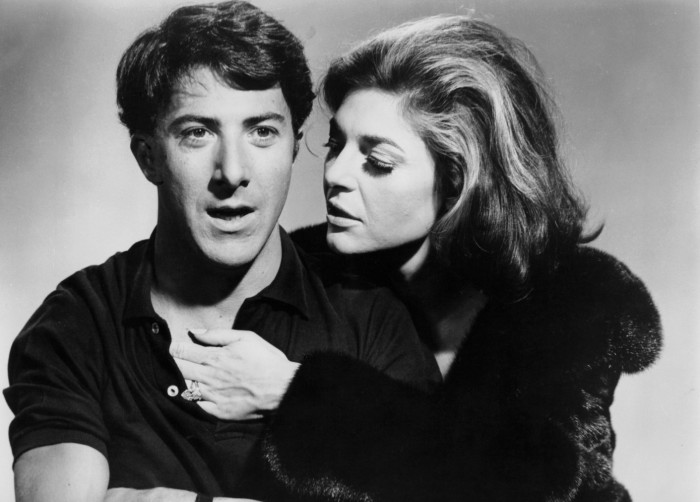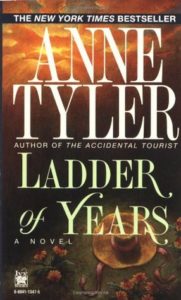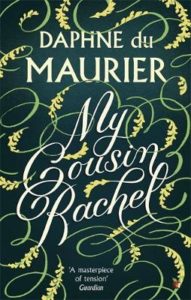I like to think I’m an honest woman. I promptly come clean in a shop if I am given too much change. And when I married my second husband, we stipulated a “no white lies” rule. Yet I have always been fascinated by women in literature with secret motives. My own fictional female characters revel in dishonesty.
A psychologist might explain this by saying that I am interested in exploring a different behavior pattern from my own. But I think it’s more to do with a writer’s calculated attitude to plot and characterization. People on paper are so much more interesting when they have a hidden agenda.
Below, I’ve listed ten classics where the heroines are mistresses of the “secret motive game.”

Lady MacBeth: William Shakespeare, Macbeth
Lady M will stop at nothing to further her husband’s career. Her secret motive is to place the blame on the servants. “We must make it seem like they’re guilty.” The audience is hooked—especially when Banquo returns as a ghost. Can that really be him, she wonders? The secret motive theme has come full circle. This time it’s Macbeth’s wife who isn’t sure what’s going on. Has she been ousted at her own game? Perhaps someone should have told her about Karma….

Amy: Louisa May Alcott, Little Women
It’s the sweet-faced deceivers who really intrigue me. Take Amy in this band of famous sisters. She has no reason to be nasty. After all, she is blessed with beauty—an attribute that will surely get her way ahead of her sisters in life—but this doesn’t stop her from having not just one secret motive, but two. For a start, she burns her sister Jo’s novel, which sends shivers of horror through every writer and reader. (It reminds me of the time that my youngest, then aged six, turned off our house power supply which resulted in the loss of a whole chapter on my old computer that didn’t have an automatic “save” function.) At first Amy denies responsibility but later owns up to it. “You’ll never see your silly old book again.” There’s only one thing more hurtful than a secret motive, and that’s the moment of the reveal. By that point, the damage is done and there is nothing we can do as readers except turn the page—an effective ploy by the author to keep us reading.
Then there are Amy’s secret motives concerning Laurie, the handsome boy next door. Don’t tell me that she just happened to fall in love with him when they conveniently met up in Italy. I get the feeling that this is a woman who will carry on having a few other secret motives up her sleeve in years to come and that Laurie might just rue the day that he fell for her. I still wish he’d married Jo….

Cordelia: William Shakespeare, King Lear
Forgive me for mentioning this famous bard again but Shakespeare really does have “women with secret motives” down to a fine art—especially when it comes to filial affection. Really! All that girl had to do was to tell her father that she loved him. Yet she goes all coy when put on the spot. “I love Your Majesty according to my bond; nor more nor less.” Or was this a deliberate act on her part? My theory is that cunning Cordelia was fed up with Lear’s self-absorption and thought she could use her hesitation to get out of her crazy family and never have to go home to Thanksgiving again. But instead, she causes chaos—even death!—which just goes to show that even the best of secret motives don’t always work out as planned. (Apart, of course, for Shakespeare, who made a living out of it and gained everlasting fame.)

The White Witch: C.S. Lewis, The Lion, The Witch and the Wardrobe
It’s no coincidence that children’s books contain a high percentage of heroines with something nasty up their sleeve. Writers learned long before the age of “juvenile inattention syndrome” that they needed to grab young readers fast. As a nine year old, I devoured The Lion, The Witch and The Wardrobe but had nightmares about the White Witch and her game plan. “You know that every traitor belongs to me as my lawful prey and that for every treachery I have a right to a kill.” Fast forward some forty years to the time I brought my family to a stage production of Lewis’ work. Even though I knew what was coming, I still broke out in goose bumps when Edmund took that swig. It’s surely a testimony to C.S. Lewis’s brilliant psychological characterization that female deception has no sell-by date.

Cruella de Vil: Dodie Smith, 101 Dalmations
Author Dodie Smith makes no secret of her intentions when the Machiavellian Cruella de Vil virtually salivates all over those sweet little black-and-white puppies. “I must, I must see those darling puppies.” Yet it’s the knowledge that Cruella really wants them for her wardrobe that keeps us feverishly reading. We want to make sure that everyone else in the book finally realizes she’s evil, too. The fact that we, as readers, suspect her motives—unlike the naïve characters around her—makes us feel responsible and slightly superior. We are in on the deceit and we want to warn everyone else. The beauty of this book is that it’s ageless. It both scared and delighted me as a child—and it does the same to my granddaughter.

Catherine: Ruth and Augustus Goetz, The Heiress
Some of my most memorable encounters with the “secret motive feminine brigade” is in the world of celluloid. Once a month, I visit my ninety-four-year-old father who lives three hundred miles away. He likes to watch old movies with me in the evening. One of his favorites is the film adaptation of The Heiress. The story follows a woman called Catherine (played by Olivia de Havilland) who is taken in by a gold digger. She gets revenge by rejecting him in the end—a tactic which takes him by surprise when she instructs her maid to “Bolt the door.” I’m on her side. My father is on his. This must say something about the male and female psyche…

Mrs. Robinson: Charles Webb, The Graduate
Hidden motives can sometimes become more powerful when they’re flaunted. I first read Charles Webb’s The Graduate when I was a teenager and was prudishly shocked by Mrs Robinson’s intentions. “Would you like me to seduce you?” Since then, I’ve seen the film about three times at different points of my life. Maybe it’s significant that, as I approach Mrs R’s age myself, I find myself admiring her not-so-hidden sexual agenda instead of disapproving. (Let’s hope my own children don’t read this!)

Delia: Anne Tyler, The Ladder of Years
Some heroines adopt secret motives for very understandable reasons. Tyler is one of my favorite authors. When Delia disappears, her family fears the worst. But Delia is only trying to find out who she is and how to go forward. “Why wasn’t there an etiquette book for runaway wives?” There’s a publishing opportunity out there…

Bertha: Jean Rhys, Wide Sargasso Sea
I’m not always a lover of sequels that aren’t written by the original author. but this is an exception in my book. In Jane Eyre, it’s Rochester who has the secret motive in hiding his mad wife. However, I’d always wanted to know more about poor old Bertha who has such a horrible end. Rhys not only fills in the gaps – she also takes us down the road of self-deception. “You can pretend for a long time, but one day it all falls away and you are alone.” Brilliant.

Rachel: Daphne du Maurier, My Cousin Rachel
Here’s a novel that always sends shivers down my bones no matter how often I read it. Rachel is oh-so-believable when she declares she didn’t murder her husband. But what exactly does honesty mean? “Truth was something intangible, unseen, which sometimes we stumbled upon and did not recognize, but was found, and held, and understood only by old people near their death, or sometimes by the very pure, the very young.” Love it.
***
My own heroines specialize in secret motives as well as twists and turns. In My Husband’s Wife, Lily marries Ed for reasons that aren’t revealed until later. “But that’s how some lies start. Small. Well-meaning. Until they get too big to handle.” In Blood Sisters, Alison is about to expose her own past. “Rhythm is what keeps some people going. Now I’m about to smash mine into a million little pieces.’
But perhaps the final word should rest with George Eliot—who in reality was Mary Ann Evans. In her day, it wasn’t done for a woman to write novels so she assumed a male pen name. What better reason for a secret motive than that?




















